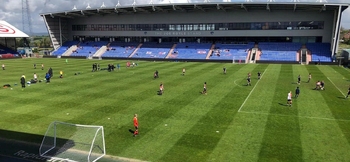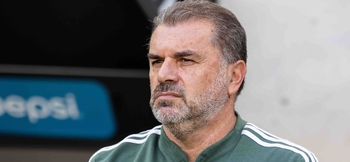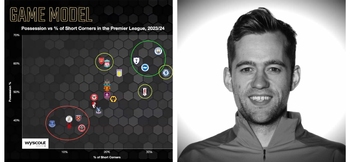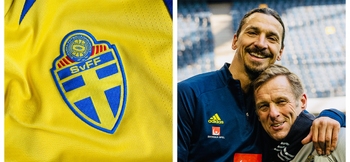Collins & Rosenblatt: The four core principles of external support
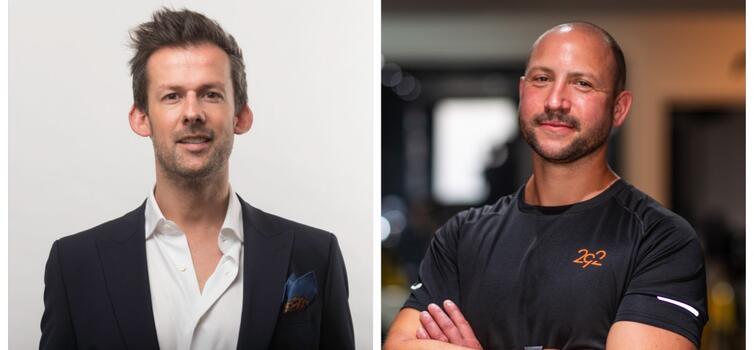
James Collins (left) of INTRA Performance Group and Dr Ben Rosenblatt (right) of 292 Performance
Written by James Collins & Dr Ben Rosenblatt — January 9, 2024
MANY clubs and organisations regard the growing use of external support staff as a threat to player welfare and performance.
It’s been well documented that more and more players are seeking support from external strength and conditioning coaches, nutritionists, performance scientists and more.
However, we believe that when delivered in a collaborative manner with credible organisations, this external support can actually be a ‘force multiplier’, delivering the additional support that players desire as part of a trusted extension of the club’s existing performance team.
This is what we will be exploring in this article but, first, full disclosure: we have set up a partnership called INTRA292 that provides a holistic external performance service for elite players.
Some people were surprised when we made this move to the 'outside' - we had been working for elite clubs and federations throughout our careers before this - but we believed it represented the best way to have the greatest impact on individual player performance.
WHY ARE PLAYERS SEEKING EXTERNAL SUPPORT?
We would argue that the concept of external support for teams isn’t a new phenomenon. When we first met some 15 years ago at Bisham Abbey (Rosenblatt was at the British Olympic Association Intensive Rehab Unit and Collins with UK Sports Institute), three athletes per week would come to rehabilitate with an interdisciplinary team in a residential setting in the Rehab Unit.
Teams would typically refer athletes because a lack of resources within their own National Governing Body, or because they wanted additional expertise to accelerate rehabilitation. We would conduct a RESTQ questionnaire at the start and end of the athlete’s stay and, without fail, they would report a significant decrease in perception of stress and an increase in perception of recovery.
When we evaluated why, we found that peer support, having a team committed to them and the time taken to understand their situation in more detail were key. In recent years, we’ve witnessed a growing trend of athletes forming their own performance teams in both the US and Europe, mainly in golf, basketball and cricket, but also extending to musicians in the entertainment industry.
Many requests for support are now coming from agents who are looking to ensure their player is ‘ticking every box’ at their current club, while also maximising the longevity of their career.
A player's career could include seven or more transfers to different clubs, each having different resources for performance support, so it seems sensible to have constant support throughout. This has led to increased referrals to work with players across the top five European leagues over the last three to four years.
James Collins is Managing Director of INTRA Performance Group, working with clients in elite sport and entertainment in Europe and the US. He was Head of Nutrition for Arsenal and has also worked with Chelsea and the England and France national teams, as well as Team GB athletes at four Olympic Games.
Dr Ben Rosenblatt founded 292 Performance in 2023, having previously led physical performance for the men’s pathway at the Football Association for seven years. He has coached medal-winning athletes at every Olympic Games since 2008.
Within the club environment, external support may also be required due to a lack of resource and also a lack of internal staff time to deliver deep, individualised work. Undertaking a biomechanical and nutritional analysis and programming can take up to eight hours per athlete, for example, so delivering this service for a squad of 24 plus a loans group might be an unrealistic expectation for an already stretched performance team.
Being able to ‘outsource’ this type of support can be a competitive advantage for a team and certainly for the individual athlete.
Fully supporting loan players from a physical performance and nutrition perspective can also be difficult, meaning ongoing support and communication from the parent club could be limited. In this case, we believe there is an opportunity for an external service to provide a trusted extension to the club's existing support team.
We believe players seeking external support should actually be seen as a positive because, fundamentally, they are aiming to take ownership of their preparation and recovery to maximise performance.
WHAT ARE THE CURRENT CHALLENGES?
Through the process of combining disciplines, we have developed our ‘core operating principles’ (the four Cs):
1. Communication
With our INTRA292 partnership, we have a very clear club communication and connection policy. This involves ensuring clubs have full visibility of the training programme, that we share all data and insights simultaneously with both player and club and that we build a collaborative performance (training and nutrition) programme with a clear communication process.
Each club and player has a nuanced perspective on this, but once we have clarity on our operating principles, we are able to share information more effectively and the club has more confidence in what is being delivered to the player.
Rosenblatt: In my first three months working for England, most of the Premier League clubs called a meeting to share their concerns about how the current physical performance system was operating.
Specifically, they were unhappy with the lack of consistency with information being handed over, as well as what was delivered on camps. By listening to their perspectives, we were able to align our work programme with overcoming these challenges. We made sure that there was an efficient and effective data exchange system, that the teams had clear training plans and that expectations for the camp two weeks prior to the start of camp and that data and information was handed back within 24 hour of camp completion.
This increased the trust that the clubs had in us so that when we wanted to initiate more challenging systems such as physical profiling or have conversations around player development, we were more able to have these.
Collins: Whether working inside or outside of a club environment, it is important that nutrition works in an interdisciplinary way and not in a silo. This was one of key messages from our recent UEFA nutrition consensus from prominent coaches and medical staff across the game.
In the case of working with an external support team, managing the flow of information is key. With our INTRA292 partnership, we have a live example where we are working with a player. It can be very tempting just to put the club nutritionist and our nutritionist in touch directly to discuss body composition data, however this is where siloed conversations occur. We believe that best practice for all performance data to be managed in the same way through the designated performance point of contact. This allows our practitioners from both INTRA and 292 teams to review all data (training, physiology, body composition, etc.) and context together, so decisions can be made collectively.
A second challenge with external support is that often players ask for extra testing data: bloods, body composition, hydration (or more recently gut microbiome). From working in the club setting, I remember the issue this causes - reducing continuity for the player, MDT staff and all stakeholders. So our stance is clear on this; we direct the player back to their club for all testing. We believe it’s crucial it’s managed by the club in-house. This way there is continuity with the data, and gives opportunity for clear communication. Often this is about us setting clear expectations (and sometimes a difficult conversation) with the player when onboarding them.
2. Coaching
Our programmes are based on weekly touchpoints (in person or remote) with a player to upskill them on different areas of their longer-term athletic development. These include physical preparation, psychology, nutrition and physiology.
The intention is to improve a player’s competencies in each of these areas, which will ultimately mean they execute better on the training ground and in matches.
Educating the athlete on the rationale behind decisions that take place in their daily training environment and providing them with the knowledge to make better decisions for themselves can add great value to a player’s preparation.
Collins: We believe in a deep dive into a player's attitudes, beliefs, objectives and challenges at the start of the programme. Often we will visiting their home to understand the support infrastructure (partners, family, friends) they have in place to execute their nutrition and wider recovery strategies.
We'll be interested in whether their home is set up for sustainable success over a long season and how much of their plan is being actioned at home. We also conduct weekly video meetings in their home environment, which can provide a valuable insight into their lifestyle away from the training ground.
Another big take-home message from our UEFA consensus is that players tend to eat the same way each day based on habit: often under-fuelling during match preparation and recovery and over-fuelling on lower loading training days. Both practices are sub-optimal and our data highlights that this leads to reduced energy capacity during matches cumulatively over the season and sub-optimal body composition (muscle mass and body fat).
Often these practices for elite players are built on years of sub-optimal habits and take a while to unpick. We use an internal analysis software to analyse players' intake meal-by-meal and coach them on where they are meeting or falling outside of their target intakes.
Rosenblatt: Some people say you can’t get faster in season or towards the end of your career. However, we’re working with an athlete who has made a significant improvement in his acceleration performance and is now sprinting as fast as he was four years ago, despite a significant injury history. We’ve achieved this by using AI-driven biomechanical analysis to assess sprinting technique and associate this with his neuromuscular performance.
By adopting this approach, we’ve been able to identify very precisely what adaptations the athlete required (in this instance it was how far he was traveling per step, which was strongly associated with his lower body power and posture). This allowed us to select very specific exercises and performance targets which the player was motivated to achieve within each session.
This process took a long time to go through, meaning the club might not have been able to do it.
In terms of both physical preparation and nutrition, problems can be created by not setting expectations at the start of the process. This is a two-way relationship - we provide the player with strategies for every scenario they face (training days, match days, travel, recovery), they feed back and we refine the strategies together.
3. Contracts
All of our programmes with clients are long-term (more than one year) and we believe this two-way commitment is vital to ensuring players are invested in the body of work and that our practitioner teams are able to work and challenge players.
Ultimately, this again comes down to continuity and a long-term vision for a player’s career (in contrast to the short-term fixes we are too used to seeing from external providers).
We also have long-term contracts in place with players, to protect all parties. These are produced by a legal team and clearly outline the service deliverables alongside strict confidentiality and data privacy clauses.
This gives all stakeholders confidence in our process and professionalism. This process of setting up contracts isn’t always straightforward. In onboarding one athlete, we soon realised we were represented by different partners of the same legal firm! What followed was an expensive few days ‘lawyering’ different clauses, until we reached an agreement. But we wouldn’t change this experience or the learnings.
Long-term contracts also reduce the need for excessive marketing on social media. Taking a respectful and responsible approach to marketing can give the player and club confidence in the service. We believe in the athletes telling their own stories (our story is about our work and not their leverage) and want our service to be known for being professional and discrete.
4. Credibility
Ensuring that the external support team have the appropriate skills, qualifications and are following the same company systems/methodology is crucial to solving the player’s performance problems. Making sure they are trusted by the club will also mitigate the threat of a player making bad decisions for their preparation and recovery - such as seeing external staff who are motivated by short-term money or fame.
If the external support team has industry credibility and rare expertise that isn’t consistently available internally, they can become a trusted, valuable extension of the club’s team.
CONCLUSION
We hope that we have outlined a viable solution to an increasing trend in elite football. By having clear processes on the 4 Cs, we hope that external support can start to become a positive in team meetings and that trusted colleagues, wanting the same performance impact, are on the end of the phone.








